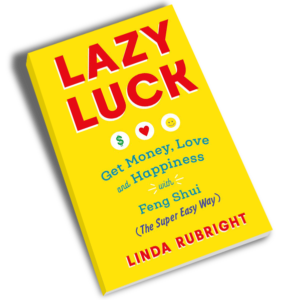Courtney Carver was an Ad Sales Director for a group of luxury magazines. She was in debt, she worked all the time and she was stressed out. Then, in 2006, she was diagnosed with Multiple Sclerosis and was forced to look at her life habits. She started by changing her diet and ended by quitting her job and getting rid of the vast majority of her belongings. The results? She is happier, calmer and hasn’t had any MS symptoms in the last four years.
Here is a bit of her story.
On your website, bemorewithless.com you said, ‘Minimalism is sparked by the desire to live with less.’ How did being diagnosed with MS spark your desire to live with less?
Within a couple of months of my diagnosis I had learned so much about what impacts MS. I learned that stress is one of the biggest culprits in not only MS exacerbations but in general health decline. I think we all know this, but our lives are so busy and stressful that we don’t want to address it. We don’t really want to know the truth because then we will know that we are sort of killing ourselves. I know that sounds harsh, but that is what it came down to for me. I don’t think I deserved my illness, but I think I made myself sick by working so hard.
Why were you working so much?
Initially it was to provide for my family, but what it turned into was wanting more — which I think is natural. You make some money and you buy some things. You make more money and you buy more things and before you know it you are on the other side of it and you have bought more than you have to spend or at least that was my situation. I was not really working to support my family but to support my debt and it all started to not make sense, so I turned in the opposite direction. I started to look for ways to reduce stress in my life and the number one way to reduce stress was to reduce my stuff I had worked so hard for, so I would not have to continue to work so hard for it.
You were spending more than you were making?
I was and I had been for a long, long time. I thought I deserved it. I was working hard. I didn’t think I was doing anything wrong or bad I just thought I was doing what was right or normal. I was exhausted from work, so I had to spend $3000 on a vacation.
How did the path to minimalism prepare you for leaving your job?
In many ways. Probably the biggest is my husband and I paid off all of our debt with the exception of our house. We paid off the car loans, the student loans, credit cards, department store cards. I was a frequent shopper at The Gap, Banana Republic and Macy’s. I had all of their credit cards because I wanted the points and it made me feel important. Even though there was only $50 or $100 on some of the cards, if you can imagine that multiplied times all the cards — that really adds up. We did not go out to eat as much. We did not go on vacation. We just really dedicated ourselves to the debt and an interesting thing happened while that was happening – our spending habits changed naturally.
We realized we did not need to spend every weekend at Target or Home Depot or go to the grocery store four times a week. We really got mindful about how we were spending our money and how we wanted to spend it.
When did you quit your job?
In October 2011. I had worked for someone else since I was 13. It was really huge and kind of scary but a very exciting move. My values had changed, I changed and so my work had to change. Now I wake up every Monday morning so grateful that I do not have to go to a sales meeting and I don’t have to do somebody else’s work.
What advice do you have for people that are in debt right now?
For us it was taking an honest assessment of the debt we had. Not how much our monthly payments were, but how much did we really owe.
I am a big Dave Ramsey fan. I like his approach which is to start with a $1000 emergency fund which sort of alleviates the pressure of anything that might go wrong with the car or a medical bill or some other emergency that comes up and strangely, in my experience, they come up less when you have that money tucked away.
The second thing is to arrange your debt from lowest to highest, which at first I thought that was crazy. But if you are going to be paying off your debt in two, three or five years it makes sense just to get it done and the amount of interest you are going to pay is negligible whether you start with your lowest or highest debt. The idea is that if you start with your lowest debt first you build that momentum and excitement to get it paid off and that really worked for us. Once that is all paid off then you can look at how you are saving and how you are giving.
How long did it take you to get out of debt?
I think it took a good two years once we got serious about it.
Was life bleak in those two years?
No. It was crazy because it was so exciting. We finally realized we could be debt free. It never occurred to me before that I could live without a car payment or that I would not be paying student loans until I retired. It was just really revolutionary to me. There were a lot of things we did to cut expenses which you would think would lead to an even bleaker existence, especially in the eyes of my teenage daughter.
We cut the cable television, so we did not have a TV. We killed our home phone. We just really looked at our regular spending and how we could reduce it. It made our lives better, especially getting rid of the TV. We were no longer planning our life around the Grey’s Anatomy schedule. It was crazy how we used TV to unwind at night and now we sit at the dinner table or take a walk with our dog or we will get outside. It is not to say we never watch TV, but it is not important anymore and we don’t pay for it anymore. Getting rid of all of these things did not make life more challenging. It made life more exciting. We could see as we were paying off debt and as I was growing my business that I would be able to quit my job and that was enough anticipation and excitement to really just keep all of us in the family motivated and hopeful.
How has minimalism helped your Multiple Sclerosis?
Sometimes I shy away from the term minimalism because I think it scares people. I think it just means assessing what you have and living with less than that. It doesn’t mean living out of a backpack or not have anything. It is just less than you had before.
For me this total shift in lifestyle and in thinking about how I want to live has relieved so much pressure because now I don’t have to think about, ‘How am I going to save up to buy a new car? Or how am I going to have enough to have a bigger house, more stuff and better this and better that.’ Instead we can live in a smaller house and we are not so married to the idea of where we will live, but how we will live and that relieves a tremendous amount of pressure which facilitated me leaving my job which also relieved a lot of stress.
Since my diagnosis in 2006 I have been steadily improving health wise. The first year was kind of a mess, but since then it has been at least four years since I have had any type of exacerbation. I am virtually symptom free. My neurologist tells me that if he didn’t see my brain scan he wouldn’t know that I had MS. I have to believe that all of the things that I am doing is helping.
How did you change your diet with your MS?
Within about three months of my diagnosis I cut out milk, pork and red meat. The next month I did a 30 day raw diet to further break my ties to meat and poultry. Two years later I dropped seafood and most dairy. Very occasionally I will have something with cheese or I will eat ice cream. I am 100% vegetarian and I dabble in veganism, but I am not quite there yet. I started doing that for reasons of health but I sustain this diet for reasons of compassion.
What are you doing for work now?
I do a lot of things. I write full time for my website. I have written a few e-books. I host courses with partners and I do consulting with businesses, bloggers and marketers to show them that there are other ways besides the traditional route of spending $1000s of dollars for marketing to build a business.
How is stuff stopping people from living their truest life?
I think stuff confuses people. I think people dream about stuff and how their life will be when they have certain stuff thinking that it will fix something or make something better and the reality is that it never does. So I think everyone goes through this cycle of dreaming or wanting something – a new dress, a dining room table or a car and they imagined how they would be perceived with that thing on or in their house and so they pay for it and lose the money and when they finally have that thing they have been thinking about for three days or 30 days or three years they realize very shortly after that it didn’t change anything – they have the stuff, the bill and they have to take care of it. It is a lot of time and energy.
I used to clip out things that I wanted – a shirt that looked great on someone. I didn’t just identify with the shirt I identified with the whole lifestyle of the girl on the beach in the shirt. I think a little bit of that gets into your brain and you think, ‘My life will be better if I have that.’
How does your 16 year old daughter react to all of this?
We started this in her early teens. At first she thought this was a fad and she worried we were going to have to buy all of our stuff back. When we cancelled the cable I think that was slightly traumatic although I think she sort of enjoys all of this. I am here for her. Not that a 16 year old wants her mom always to be there for her, but she likes that I can make her lunch or I can drop something off at school for her and that I am available.
Before, I did not work evenings or weekends, but I always sort of did because my work was always on my mind and I was always distracted. When I would drive her home from school she would be talking to me and I would be in work land. Now I am much more present and I think she notices that.
I have not been pushy about her letting things go from her room. We have talked about when she gets something new for her closet for her to let something go, but she has to realize on her own and I hope if nothing else comes from it she will never take a credit card or go into debt. We have talked about it a lot. I am so glad for her to have seen the process of us paying off debt and talking about how we got into debt. I hope that is the one lesson she takes away from this – you don’t have to go into debt. Ever.
What about tips for others who might want to approach a life with less?
The first thing I would say is to start slowly and not worry about how long it will take. It could take months, years, decades and that is not important. What is important is really the mindfulness and starting in the right direction and seeing what opportunities open up to you because you have made that intentional decision to move forward. Sometimes changes happen fast and sometimes they don’t, but if you don’t start moving forward because of how worried you are about how long it will take — it will just take that much longer. Time is going to pass either way so you may as well start moving in this better direction. I think that is the hardest part – getting started. For a long time I just thought, ‘I am in debt. I am going to be in debt forever. Why make a change?’ I would say on the other side of it, it is pretty amazing and worth getting started.
I think there are a lot of people that are dissatisfied with the path society put them on and they are looking for an alternative such as this.
I think it is a smaller percentage than we think. I talk about it all the time, so the people I am surrounded with talk about it and I think, ‘Everybody must be interested.’ But I don’t think that is the case. But the word is spreading. That is for sure.
When you get in debt you get in that mentality of, ‘What is a little more debt? What is another $100?’ When we were deep in the recession we would be driving past the Cheesecake Factory and there would be a line out the door. You really have to draw the line in the sand and say no more. One of my favorite lines of Dave Ramsey’s is, ‘When you are paying off debt, you are not going to see the inside of a restaurant unless you are working there.’
It is interesting in Spain they never use credit cards and every night they go out for a drink, in the most literal sense – a drink. They spend a €1.50 then they go home and no one has credit card debt.
That is funny my parents are in Italy and they say the same thing.
It is interesting they can still have time with their friends and family and at the end of the week they have spent about 10 Euros to do it.
Right, instead of a three course meal and a big dessert and a 22 oz Coke and going to bed feeling disgusting.
What do you think is the most positive way this has impacted your family?
We are not as hurried. We can slow down and we can make decisions based on something besides money. Yes, stressful things happen, but we can take them in stride instead of being frantic all of the time. I think we were so used to being go, go, go, go. Both with simplifying my life and being diagnosed with something that gave me permission to slow down. It has been an amazing benefit to the entire family.






